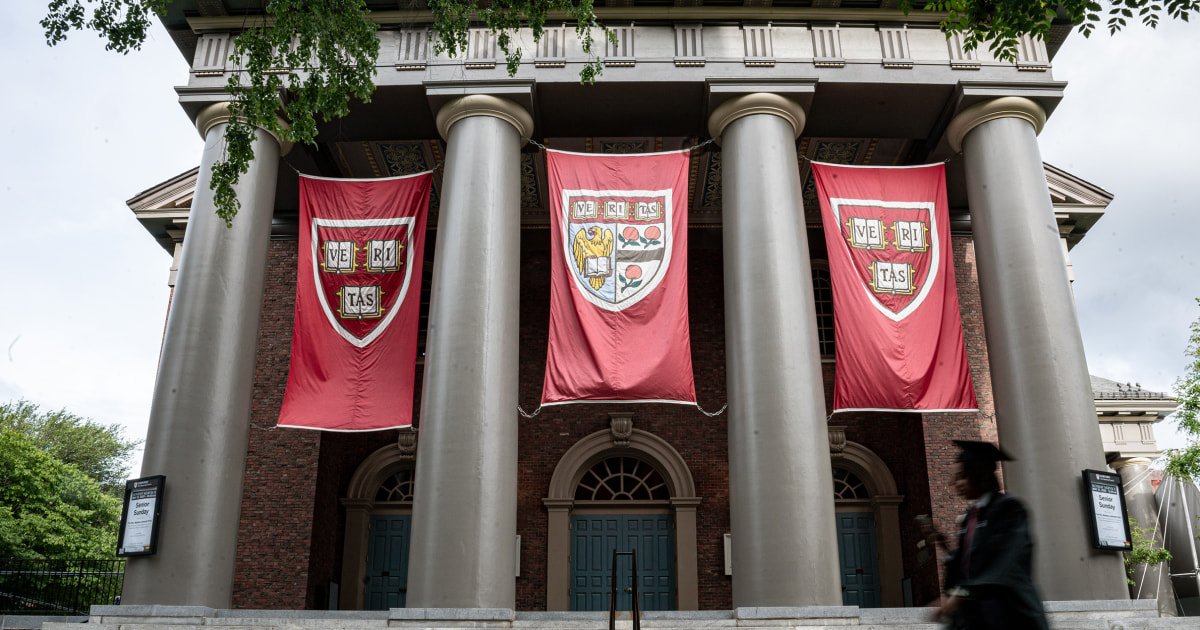Education
What to know as Harvard professor Francesca Gino has tenure revoked amid data fraud investigation

For the first time in roughly 80 years, Harvard University has revoked the tenure of one of its professors.
Former Harvard Business School professor Francesca Gino, widely known for researching honesty and ethical behavior, had her tenure revoked, a university spokesperson confirmed on Monday.
Gino, 47, and her attorneys did not immediately return requests for comment.
The former professor was placed on administrative leave in 2023 after multiple allegations of falsifying data surfaced. She has long maintained that she did not commit academic fraud.
Harvard declined to provide additional details about her revocation, noting that it does not discuss personnel matters.
The move does not appear to be related to the university’s ongoing standoff with the Trump administration. For weeks, Harvard and the administration have been in legal battles over cuts to the university’s federal funding and ability to enroll foreign students.
However, the revocation represents an unprecedented penalty at Harvard, where no professor has lost their tenure since the 1940s, according to the student university paper The Harvard Crimson, during an exceptional time in the history of the nation’s oldest university.
Who is Professor Francesca Gino?
Gino graduated with an economics degree from a small university in Italy, her home country, a copy of her resume says.
She then earned her PhD in economics from the University of Pisa, before moving to the United States to work on a postdoctoral fellowship at Harvard.
“I was supposed to stay in the U.S. for about 6 to 9 months,” she wrote in a 2023 post on LinkedIn. ”But I truly loved my research and my work, so I never left.”
“I’ll never forget how fortunate I was to have people at Harvard invest in me,” she added.
Gino then worked as a lecturer and researcher at Harvard Business School before becoming a professor at Carnegie Mellon University and later at the University of North Carolina at Chapel Hill.
According to her resume, she returned to Harvard as a professor at the university’s business school in 2010, teaching graduate courses on decision-making and negotiation. Three years later, she published her first book, Sidetracked, on the science behind decision-making.
In 2015, business school news site Poets&Quants named her a “best 40 under 40 professor.“
Gino published a second book in 2018, Rebel Talent, in which she argues that rule breakers and contrarians are the most successful in business and in life.
Throughout her academic career, she has published more than 140 scholarly papers, many of which have been widely featured in the media, such as The New York Times, The Wall Street Journal, and NBC News. Her research centered on behavioral economics, organizational behavior, decision making, negotiation and ethics, according to Harvard’s website.
The Harvard Crimson reported that in 2018 and 2019, Gino was the fifth highest paid employee at the university, receiving more than $1 million in compensation per year.
Some of her most prominent studies have been centered on dishonesty.
Allegations of academic fraud
A team of behavioral professors and researchers affiliated with the blog site Data Coloda began examining several studies co-authored by Gino in 2021, “because we had concerns that they contained fraudulent data,” the site said.
The site alleged that the data in the study Gino co-authored had been fabricated, which the researchers denied.
Later that year, the blog said it shared concerns about more than four of Gino’s other papers with Harvard Business School.
Gino was then placed on unpaid administrative leave in June 2023 after an 18-month review by the university concluded that Gino committed “research misconduct,” according to a lawsuit Gino filed against Harvard and Data Colada that year.
Data Colada’s post about their examination of Gino is also cited in her lawsuit.
According to the suit, the move removed Gino from her teaching, research, and titled professorship responsibilities. Gino sued Harvard and Data Colada for defamation, seeking $25 million in relief.
The suit points to changes Harvard made to its internal policies regarding the integrity of its research in 2021, which appeared to be made in response to the allegations against Gino.
Last year, a federal judge partially dismissed the lawsuit, denying Gino the ability to pursue charges that the university defamed her. However, the judge allowed Gino’s claim that the university breached its contract with her to proceed.
A month later, Gino amended the lawsuit to include gender discrimination claims.
